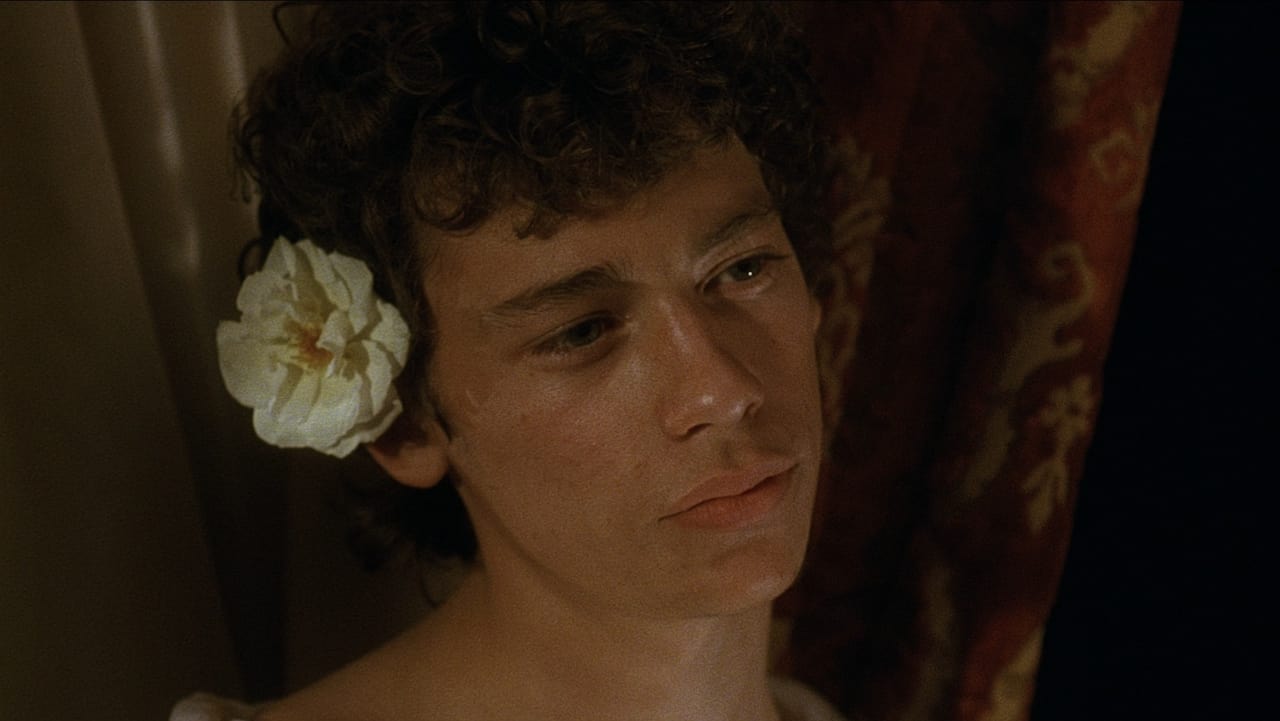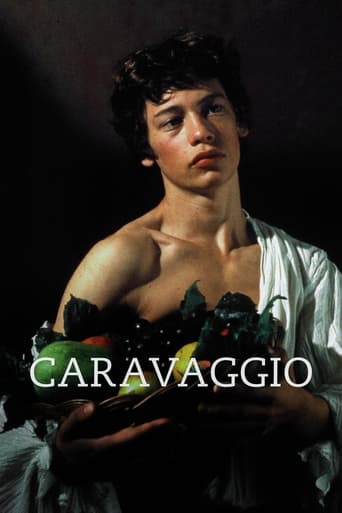Peereddi
I was totally surprised at how great this film.You could feel your paranoia rise as the film went on and as you gradually learned the details of the real situation.
Invaderbank
The film creates a perfect balance between action and depth of basic needs, in the midst of an infertile atmosphere.
tomm-25
Jarman's filmic imagery is beautiful, VERY Caravaggiesque. And - like good jazz, where a soloist improvisor may play snippets of other, well-known tunes in his/her improvisation - contains scene quotations from great works of art by others NOT Caravaggio. No one has yet mentioned the obvious take on Jacques Louis David's "Death of Marat," nor Jan Vermeer's "Girl with a pearl earring," which are the most obvious to me. There may be others. I'll have to watch it again more closely to see.This is a strange and wonderful film with many anachronistic jolts and some marvelous acting. When Tilda Swinton looks directly into the camera (making me swoon), she presages her doing so many times three years later in "Orlando."If this film is to your taste, then see Julie Taymor's "Titus" - her take on The Bard's Titus Andronicus.
Graham Greene
Quite simply unlike any other biographical film you will ever see, Derek Jarman's acclaimed production of Caravaggio (1986) is a lovingly constructed, highly personal cross-reference of tormented sixteenth century genius, twentieth century iconography and a somewhat satire on the shallowness of the burgeoning eighties' art scene of which Jarman was very much part of. Exploring Caravaggio's life through his work, the film distinctively merges fact, fiction, legend and imagination in a bold and confident approach that will probably leave serious art enthusiasts and casual viewers outraged by the complete disregard for accurate, historical storytelling.Shot with a typically avant-garde approach, director/writer Jarman doesn't so much fashion a biography of the artist, but rather, creates a personal reflection of the man using intimate characteristics that appeal to his film-making sensibilities. This makes Caravaggio more of an interpretation of the filmmaker than the artist himself; somewhat self-indulgently focusing on Caravaggio's struggle with bisexuality, perfectionism and wanton obsession; perhaps even glossing over the more intricate workings of the character, for instance, his own passion for art and his battles with the various religious and creative constraints of the period.It's a shame some of these ideas aren't further elaborated upon, because, at its heart, Caravaggio is really an exceptional film. As I commented earlier, it's perhaps unlike any other film you will ever see; an iconoclastic vision with a cinematic imagination that knows no bounds. Caravaggio is a film in which a 16th century setting gives way to the various anachronisms of passing trains, tuxedos, motorbikes, typewriters and chic nightclub settings. It is a film in which every frame is rendered in reference to the artist's work, composed with rich, shadowy colours that bring to mind the contrast between fresh and rotting fruit, and an unrivalled interplay between sound and production design that is reminiscent in its intense savagery of two dogs angrily ripping each other to pieces.There is no other 'based on fact film' that has demonstrated such a wild and evocative recreation of real-life hysteria and events, with the possible exception of Peter Jackson's masterful Heavenly Creatures (1994) or even some of Jarman's subsequent projects like Edward II (1991) and Wittgenstein (1994). With a cast of now very well known faces, such as Nigel Terry, Sean Bean, Tilda Swinton, Michael Gough, Dexter Fletcher and Robbie Coltrane - not to mention some of the most beautiful photography ever committed to film - Caravaggio represents an impressive and enjoyable combination of art and cinema that is now, twenty years on, ripe for rediscovery.
pt_spam_free
One reviewer says of those who might not like this film that "it will only be appreciated by film goers who weary of film as diversion". This, I feel, is rather unfair to those of us who find it boring.I have not become weary or disillusioned with film or with film makers, but found this tedious and self indulgent. But then, it's true, I'm not too big into deep meaningfulness. I feel that it may have great meaning for those in the know, you know.It is very slow and it spends a long time in trying to make its individual points, using imagery, indeed, to do so. But in such days as these, it seems possible that a film like this might be the kind of thing that you'd come across in one of those dark and daunting booths in modern art galleries, rather than on the screen of a popular cinema setting.
catwoman-9
It's been long since Caravaggio along with Wittgenstein created a new level in my personal movie picture register. I was fifteen and excited over any kind of ideas which has a lot to do with "another"; strange or at least different scope on reality. No surprise that I liked Caravaggio. Eventually Greenaway (Drowning by numbers and later Prospero's Books) has also found his place in that same box. And very slowly my love towards Jarman's movies receded.Is it a good movie? Scoopy has no answer to that question. Actually that question can't be answered. Caravaggio has stubbornly flat structure - it should not be a movie in the first place. And another question appears: can you be sure in Caravaggio - in Jarman's case, of any intention to make a good movie?As much as I can put aside artistic inclinations in all Jarman movies - i cannot forget the fact that regardless the time they were made, all look, talk, feel and smell the same. It is clear that articulating the scheme of the artist is of great importance. Esthetics comes first.That fact I see today as a big malfunction.

